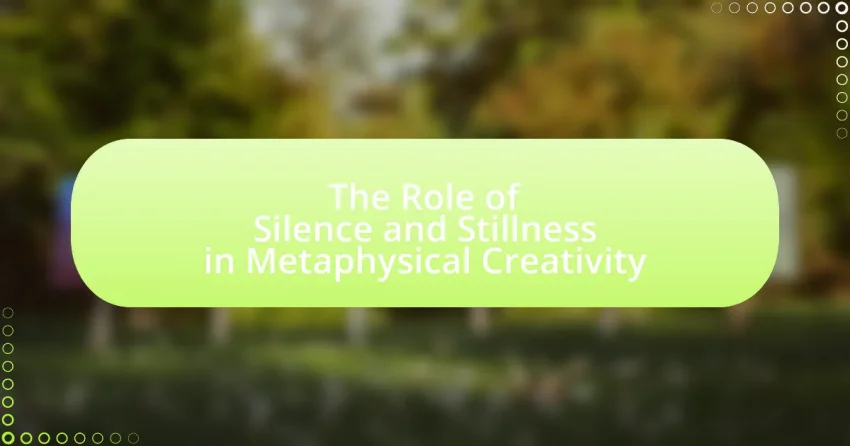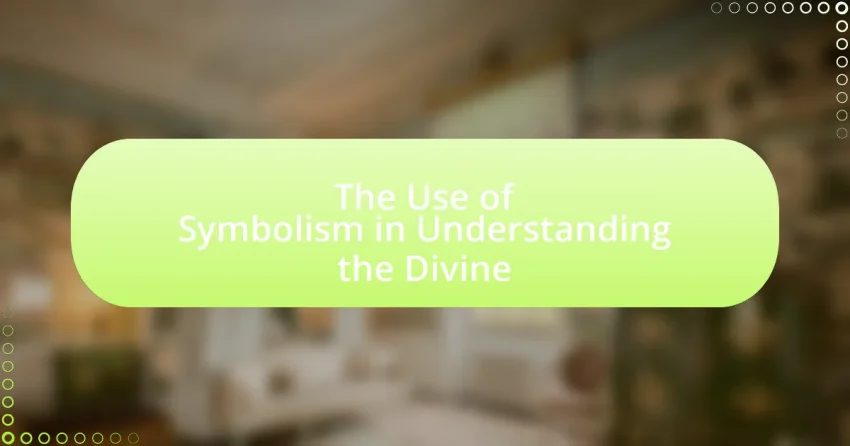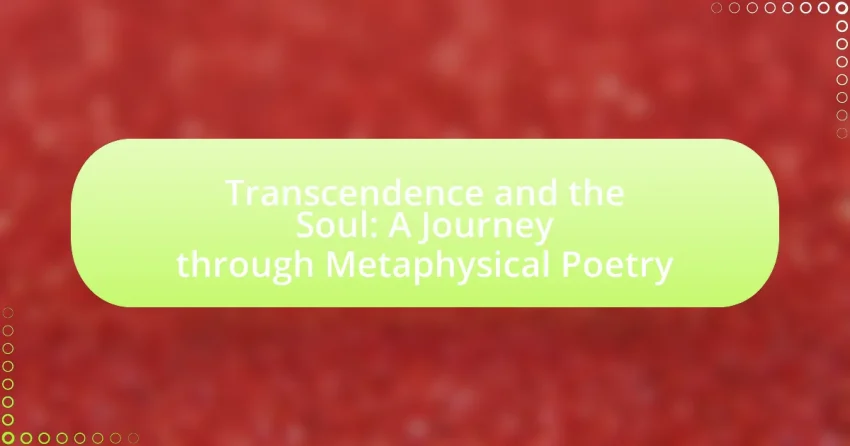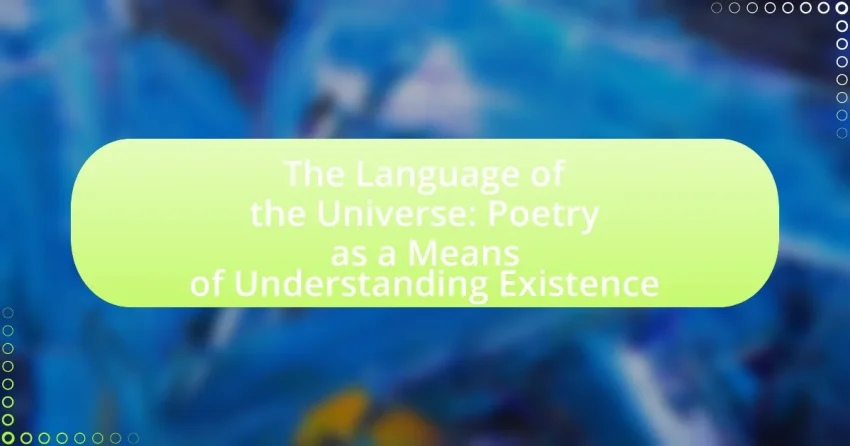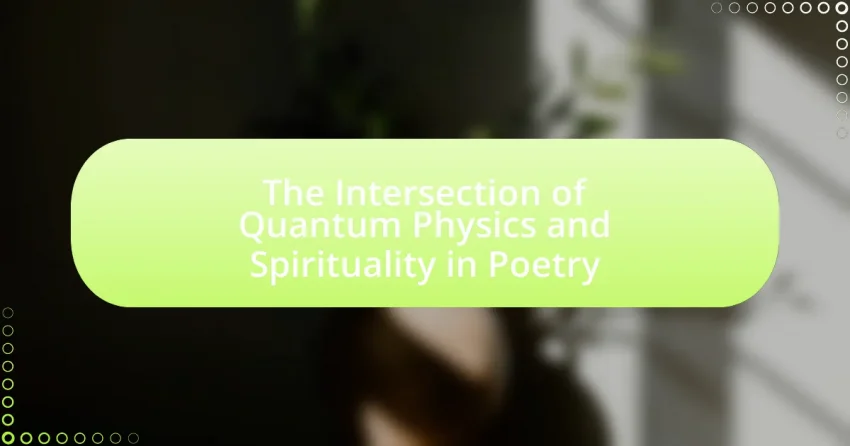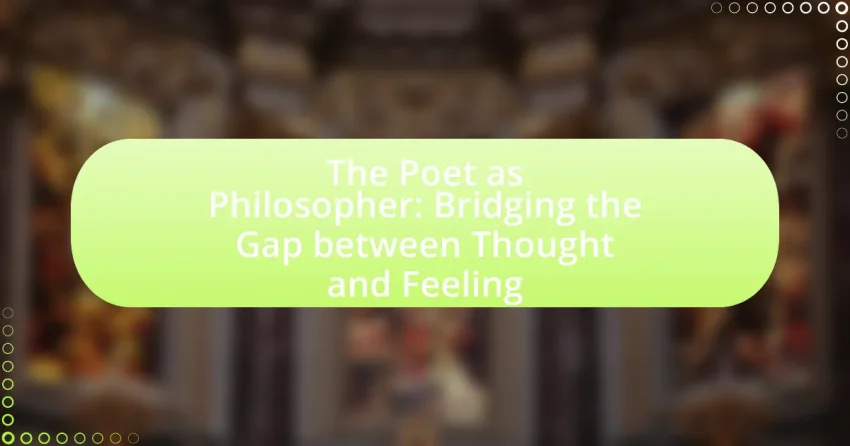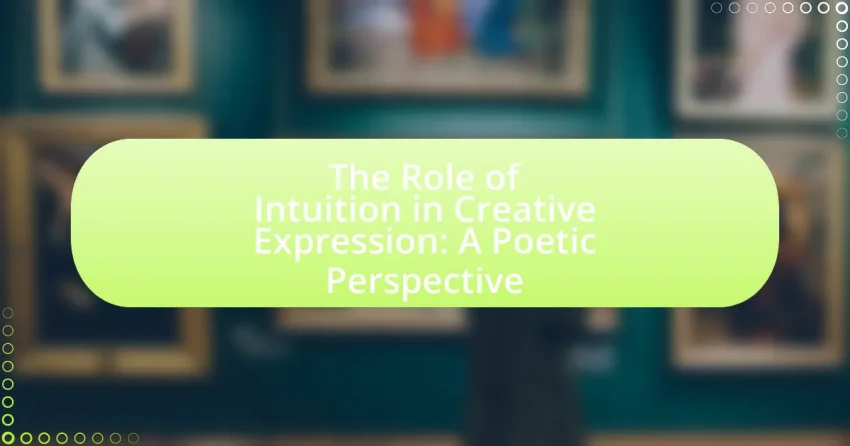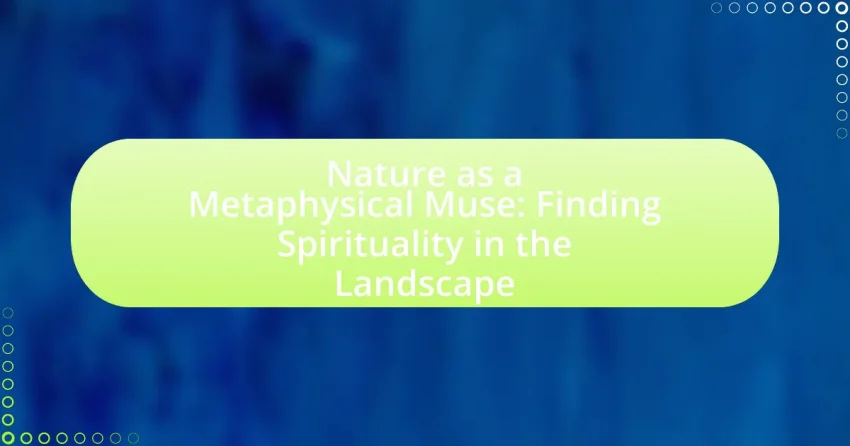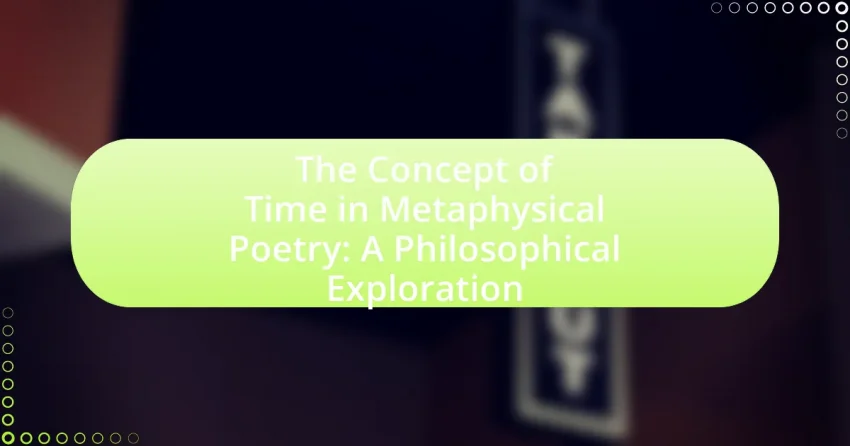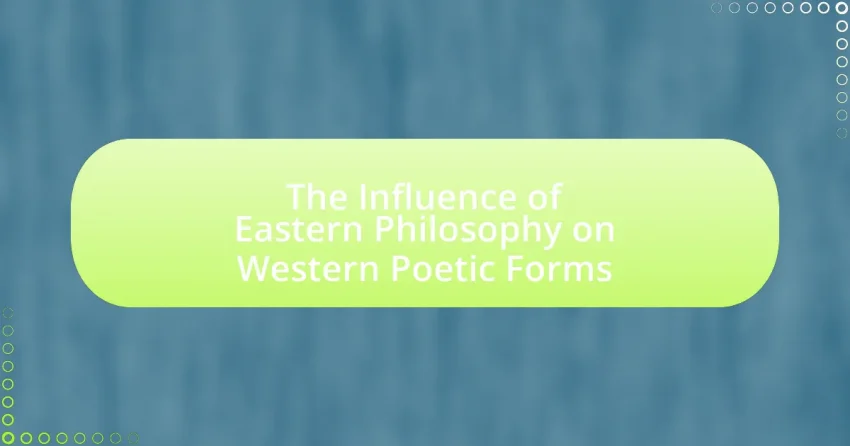The article examines the significant role of silence and stillness in enhancing metaphysical creativity. It outlines how these elements foster introspection, cognitive flexibility, and innovative thinking, supported by research findings from various studies. Key topics include the psychological effects of silence on creativity, the importance of stillness in enhancing focus and inspiration, and the integration…
The Use of Symbolism in Understanding the Divine
The article examines the role of symbolism in understanding the divine, highlighting how symbols serve as tangible representations of complex spiritual concepts across various religious traditions. It discusses key symbols such as the cross, lotus flower, ankh, and halo, and their varying interpretations across cultures. The significance of symbolism in religious texts, rituals, and personal…
Transcendence and the Soul: A Journey through Metaphysical Poetry
Transcendence and the soul are central themes in metaphysical poetry, which explores the elevation of the soul beyond the physical realm to connect with the divine. Key poets such as John Donne and George Herbert utilize intricate metaphors and philosophical inquiries to depict the soul’s journey toward spiritual enlightenment and truth. The article examines how…
The Language of the Universe: Poetry as a Means of Understanding Existence
The article explores “The Language of the Universe: Poetry as a Means of Understanding Existence,” emphasizing how poetry utilizes universal themes, symbols, and emotions to convey profound truths about life and the cosmos. It examines the role of poetry in facilitating emotional connections and self-reflection, highlighting key elements such as imagery, rhythm, and metaphor that…
The Intersection of Quantum Physics and Spirituality in Poetry
The article examines the intersection of quantum physics and spirituality in poetry, highlighting how poets incorporate scientific concepts such as entanglement and superposition to explore themes of interconnectedness and the nature of reality. It discusses how these quantum principles influence spiritual themes, allowing for a deeper understanding of existence and human relationships. The article also…
The Poet as Philosopher: Bridging the Gap between Thought and Feeling
The article explores the concept of the poet as a philosopher, emphasizing the integration of poetic expression with philosophical inquiry to articulate complex ideas and emotions. It examines how poets utilize techniques such as imagery, metaphor, and structure to convey philosophical themes related to existence, morality, and the human condition. The relationship between thought and…
The Role of Intuition in Creative Expression: A Poetic Perspective
The article explores the significant role of intuition in creative expression, emphasizing its importance for artists, writers, and creators in accessing subconscious insights and generating original ideas. It outlines how intuition influences various stages of the creative process, including preparation, incubation, illumination, and verification, facilitating spontaneous decision-making and innovative outcomes. The article also examines psychological…
Nature as a Metaphysical Muse: Finding Spirituality in the Landscape
The article “Nature as a Metaphysical Muse: Finding Spirituality in the Landscape” explores the profound connection between spirituality and the natural world. It examines how experiences in nature can lead to feelings of peace, awe, and belonging, supported by research indicating that time spent outdoors enhances well-being and fosters spiritual insights. The article discusses the…
The Concept of Time in Metaphysical Poetry: A Philosophical Exploration
The article examines the concept of time in metaphysical poetry, focusing on how poets like John Donne and Andrew Marvell portray time as a complex and multifaceted theme that intertwines with love, mortality, and existence. It explores how metaphysical poets define time, presenting various philosophical perspectives that emphasize its relativity and transience. Key themes include…
The Influence of Eastern Philosophy on Western Poetic Forms
The article examines the significant influence of Eastern philosophy on Western poetic forms, highlighting how concepts such as nature, simplicity, and interconnectedness have enriched Western poetry. It discusses historical events that facilitated this cultural exchange, including the Silk Road and the Renaissance, and identifies key Eastern philosophies like Taoism, Buddhism, and Confucianism that have shaped…
